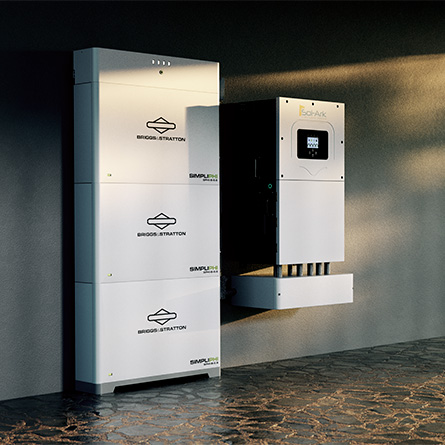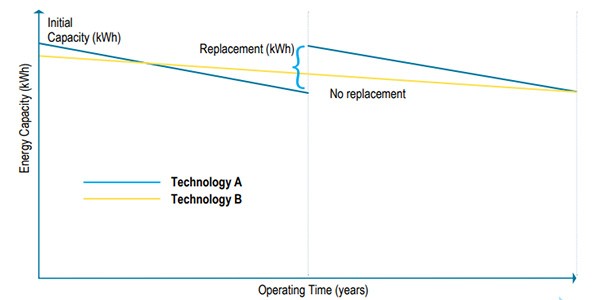The demand for battery energy storage systems (BESS) is growing significantly. Batteries are essential for guaranteeing that residential and commercial buildings can be driven by renewable energies even when the sunlight has set or the wind has ceased blowing. Distributed energy storage systems can enhance grid resilience and be a backup strategy during power outages in regions where power consumption exceeds the power supply.
U.S. battery storage is seeing amazing growth. Utility-scale storage jumped 228% from 1.4 GW to 4.6 GW in just one year - from 2020 to 2021. Similarly, U.S. utilities reported a 72% increase in small-scale storage from 2018 to 2019, with power capacity reaching 402 MW. The distribution of battery capacity is fairly even between commercial and residential, with each accounting for 41%. The industrial sector made up 14% of the installed capacity. According to the U.S. Energy Information Administration, the final 4% was directly integrated with the distribution grid, for instance, by utilities at their respective distribution substations.
With this rapid adoption of battery storage at all levels, battery warranties for newly adopted equipment are important to consider. If you're considering a battery storage system for your home, it's important to understand and compare the warranty terms. This ensures your system will meet your needs for its entire lifespan.

Battery degradation
Understanding the basics of battery degradation can help you evaluate your warranty. Similar to your laptop or cell phone battery, you will notice over some time that your battery will be challenged to hold a charge for as long as it used to when it was new. This also applies to home battery storage systems, albeit for a more extended period. Battery degradation happens with every cycle a battery charges and discharges. Degradation decreases your battery's power capacity, life, and strength over time.
Three important battery degradation factors
Operational factors (how the battery operates and is maintained).
Time (depends upon the battery state of charge; high state of charge (SOC) leads to faster deterioration).
Environmental factors (temperature is the most important consideration).
Although a battery warranty shields you from severe deterioration, adhering to the warranty terms is one of the most critical aspects for maximizing a battery’s life.
Key components of battery storage warranties
Battery Cycle Life
The number of charge and discharge cycles a battery can withstand without decreasing efficiency is known as its cycle life. Some manufacturers restrict the number of times you may cycle your battery; exceeding this condition may violate the warranty. The battery cycle life warranty is frequently determined by its chemistry and depth of discharge, as shown in Figure 2.

End of warranty capacity
Manufacturers will also mention the end storage capacity rating of your battery cycle life; this might say a battery warranty of 10,000 cycles with 20% degradation, which means it is guaranteed that at the end of 10,000 cycles, the battery has not lost over 20% of its capacity to store power.
Throughput
Throughput in a warranty specifies the entire amount of energy (in terms of megawatt-hours) that the manufacturer anticipates the battery's capacity to provide during its lifespan. Assume a battery manufacturer guarantees a throughput warranty of 20 MWh. This indicates that the guarantee is valid until the battery retains and provides 20 MWh.
Labor and shipping costs
Many manufacturers' warranty agreements exclude labor fees. A confident manufacturer will supply this in their contract if you require a replacement battery within the warranty period. Although the manufacturer could replace a faulty battery, they often will not cover the labor cost for reinstallation. Some local installers will pay for upkeep and repairs as part of their workmanship guarantee, or you can source third-party warranties for gap coverage.
Many manufacturers are responsible for the material expenses of the substitute component, but not the shipping costs. However, one option is to have equipment shipped to a local contractor, who would also be responsible for delivering and installing the items at your residence or business.
Warranty Duration
Almost all battery producers offer a warranty that guarantees the functioning of their batteries for a specific number of years. These warranty periods may fluctuate based on how confident the manufacturer is in their product. The majority of batteries have warranties between 5 and 15 years. Ranging from 10 to 15 years, Briggs & Stratton is one of the few battery manufacturers with a proven history and performance for over 10 years, offering robust warranty durations.
Workmanship
Installers tend to be the core parties accountable for issuing workmanship warranties for your battery installation.
Limitations and exceptions in warranty
Companies have to defend themselves against illegitimate complaints. Therefore, battery warranties have some limitations and exceptions that vary by manufacturer. Here are some of the most important limitations and exceptions you should consider:
Transferability
Can you freely transfer or assign your battery warranty to future homeowners? Will you need to pay additional charges to transfer the warranty?
Conditions of installation
Check the conditions, like whether you can hire any installer or must work with a certified installer. Is it possible to do a DIY installation, or does it violate your warranty?
Proximity concerns
If your home is near a beach or river, this could violate the warranty of some manufacturers. They will void their battery warranties if you operate them near saline water bodies because they can corrode the BESS casings.
Acts of nature
Nearly all battery system manufacturers will not take responsibility for any harm brought by uncontrollable natural disasters like storms, floods, earthquakes, etc. So, most of the time, the homeowner’s or business owner's insurance company will need to compensate for the damage that occurs due to extreme weather.
Manufacturer's reputation
A company's reputation is a crucial factor to consider when choosing a battery manufacturer because you will want to ensure your warranty is good in the future and avoid a young company with a higher risk of shuttering. Here are a few things that you should keep in mind when comparing different manufacturer warranties:
Company age is an important point to consider when deciding on a battery warranty. Make sure it is a bankable company with self-insurance policies to ensure warranties will be valid in case it goes out of business. Is there a parent business or partner that supports the warranty? Also, consider whether the claims process is convenient.
Whatever battery storage system package you choose, understanding the key warranty coverage points is important for evaluating your options.
Briggs & Stratton stands at the forefront of battery storage technology with a confident 15-year warranty. As an industry staple, Briggs & Stratton battery storage equipment becomes a safe investment. Keeping the mentioned factors in mind aids in making an informed choice about choosing the right battery, ensuring optimal performance and comprehensive warranty protection. With the right battery and long-term warranty in place, you could save significantly on maintenance and replacement costs.

Ready to experience true energy independence?
Request a consultation with a Briggs & Stratton dealer or installer near you by clicking the button below.
References
https://www.eia.gov/analysis/studies/electricity/batterystorage/pdf/battery_storage_2021.pdf
https://www.sciencedirect.com/science/article/abs/pii/S0959652622038513
https://www.sciencedirect.com/science/article/abs/pii/S2352152X21012147
https://www.sciencedirect.com/science/article/abs/pii/S0306261920301446?via%3Dihub
https://sci-hub.se/https://doi.org/10.1016/B978-0-12-809921-6.00025-2
https://www.sciencedirect.com/science/article/pii/S2352152X23011374
https://www.sciencedirect.com/science/article/abs/pii/S2095495623004370





